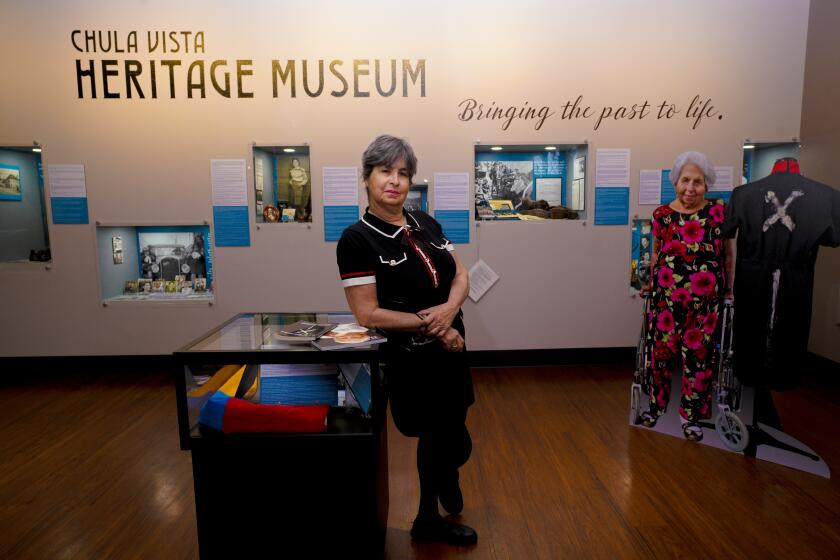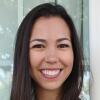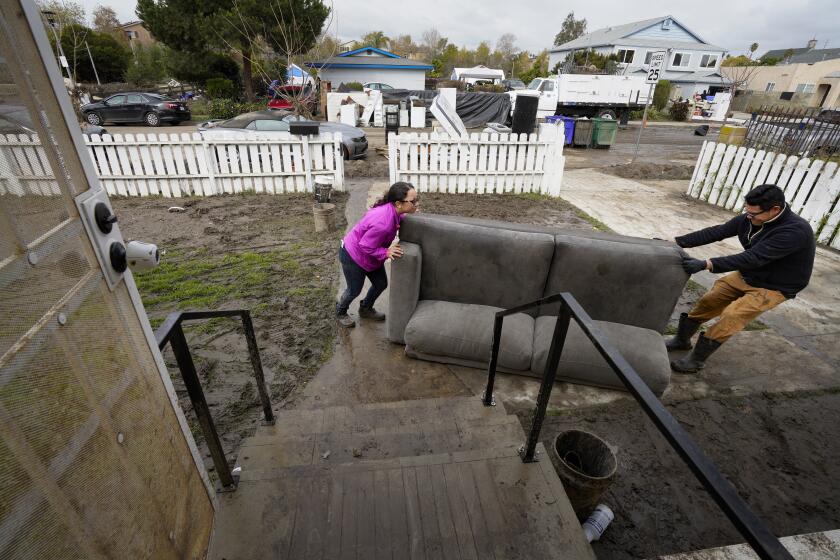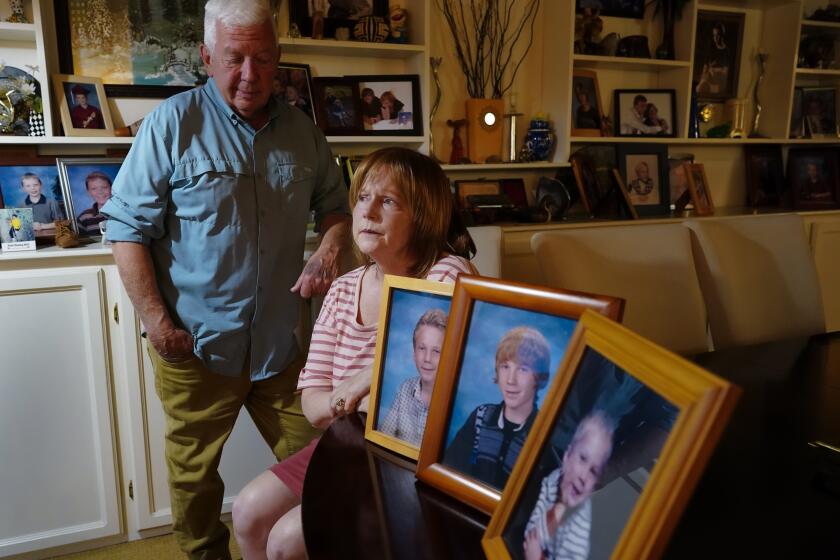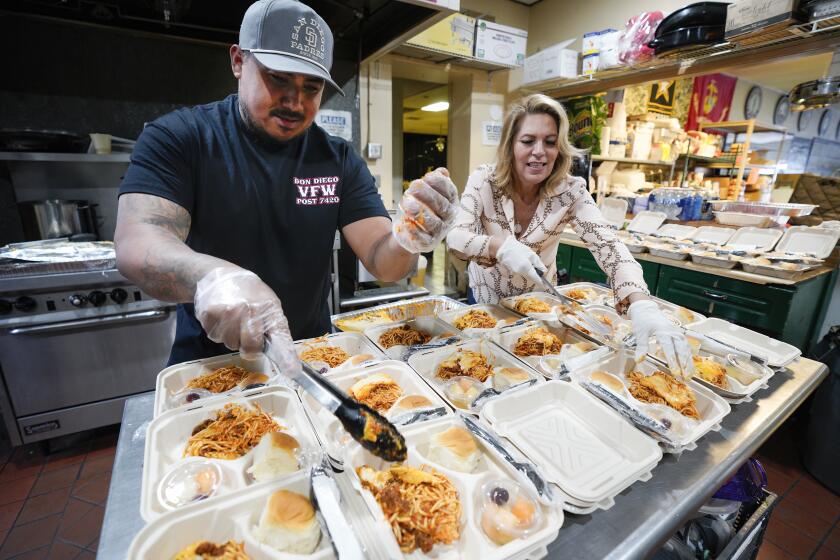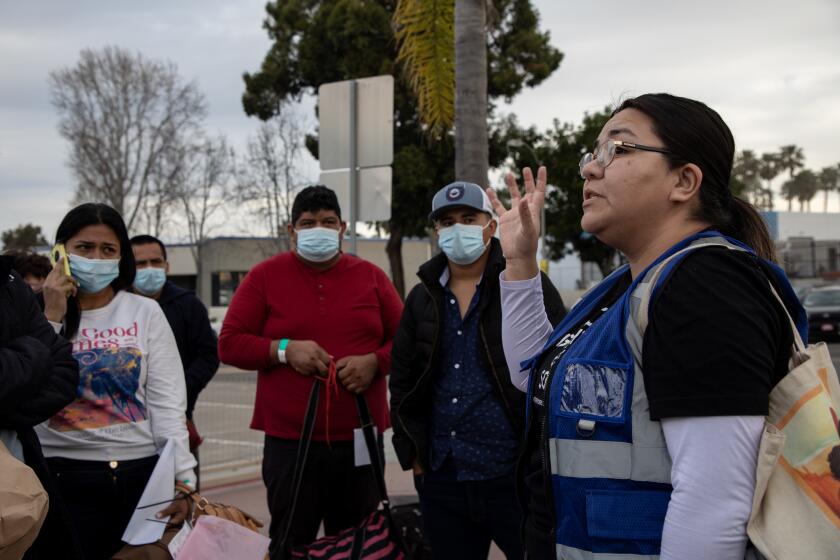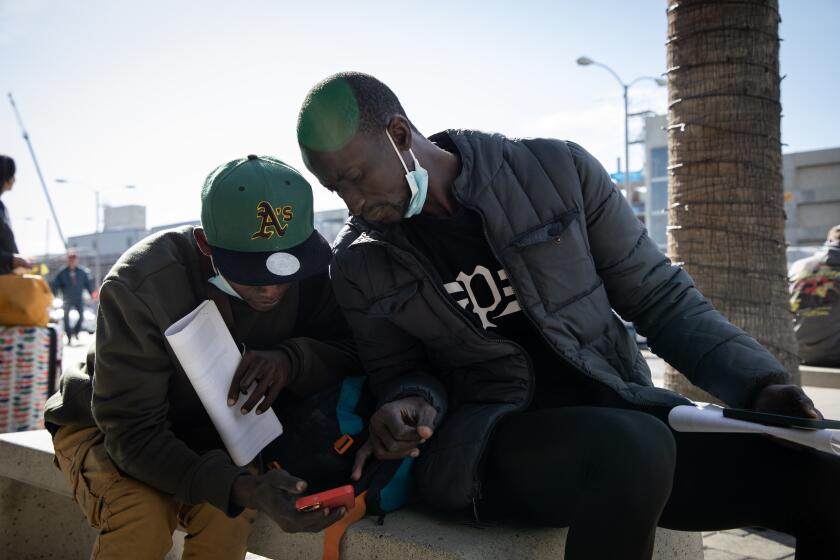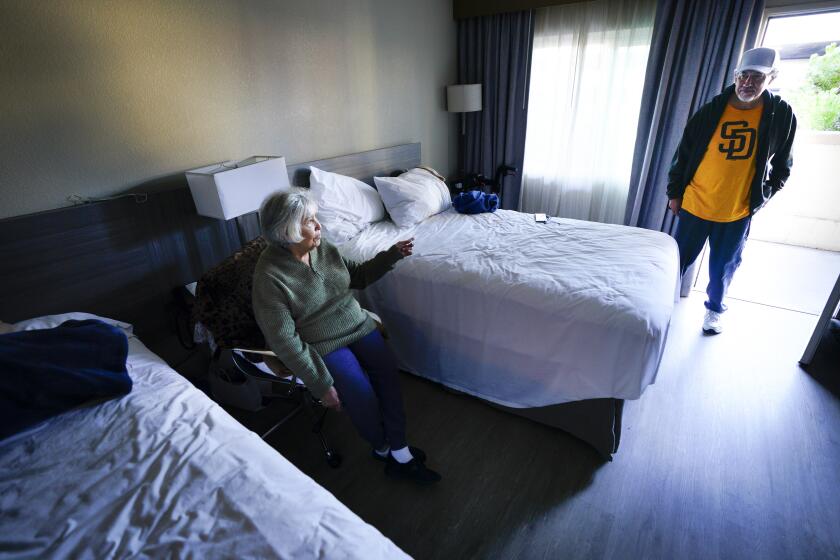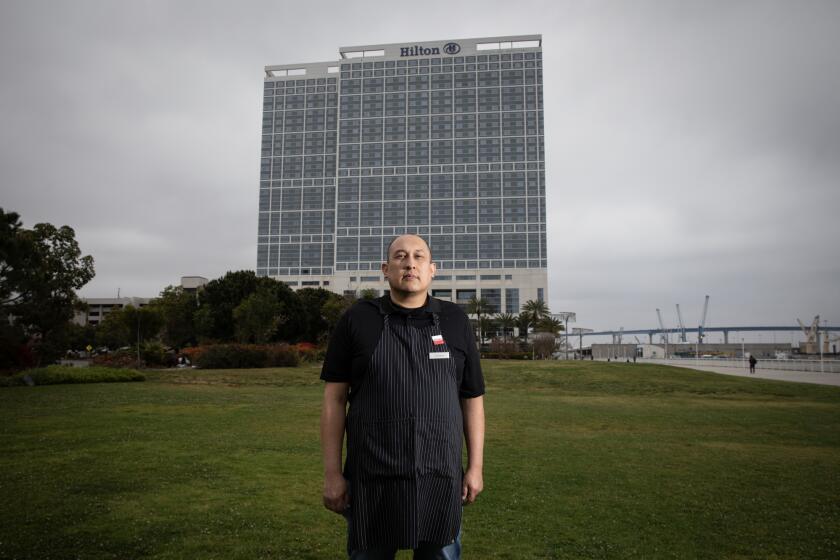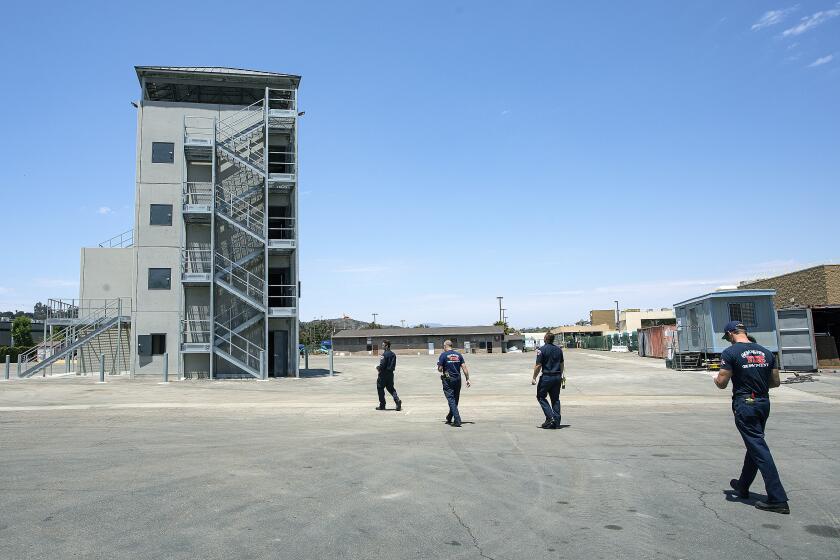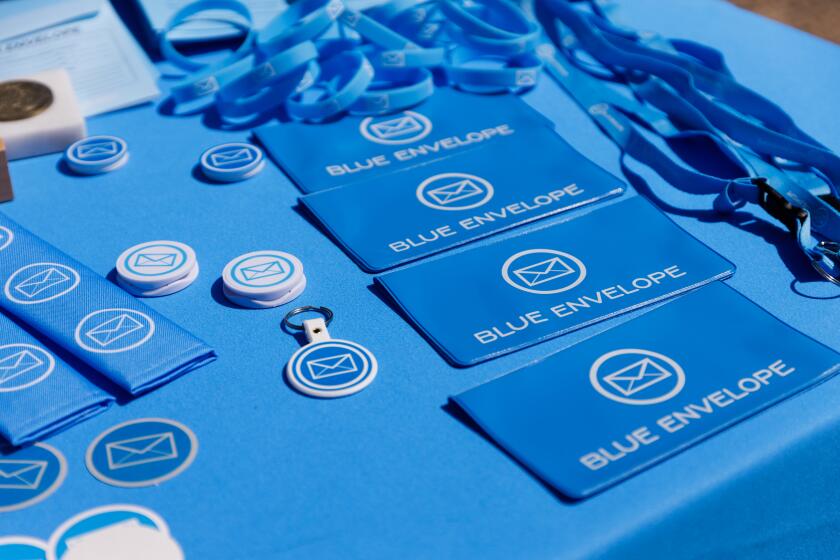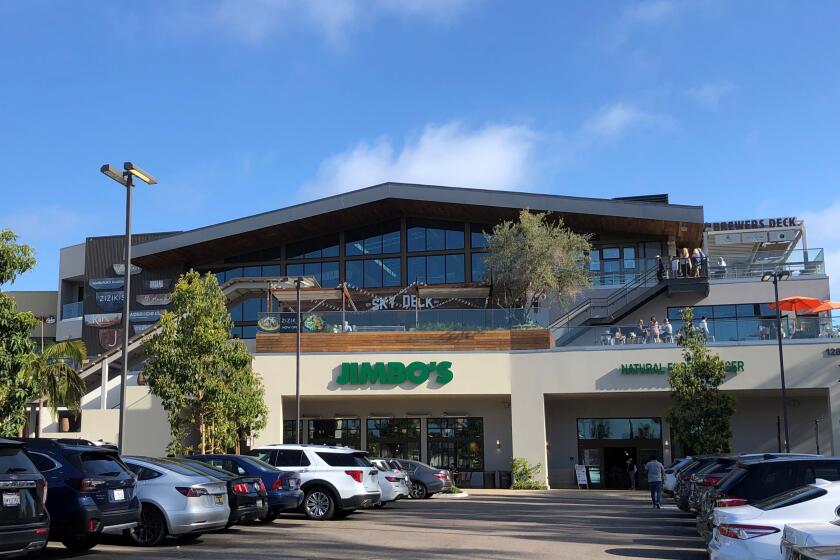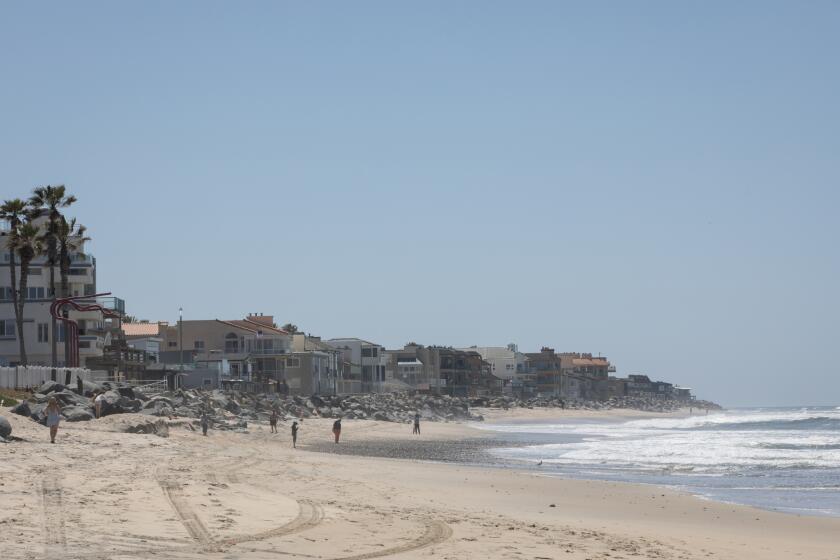She’s honored Holocaust survivors. Now a San Diego artist hopes to highlight ‘truth in history’ with a dedicated museum.
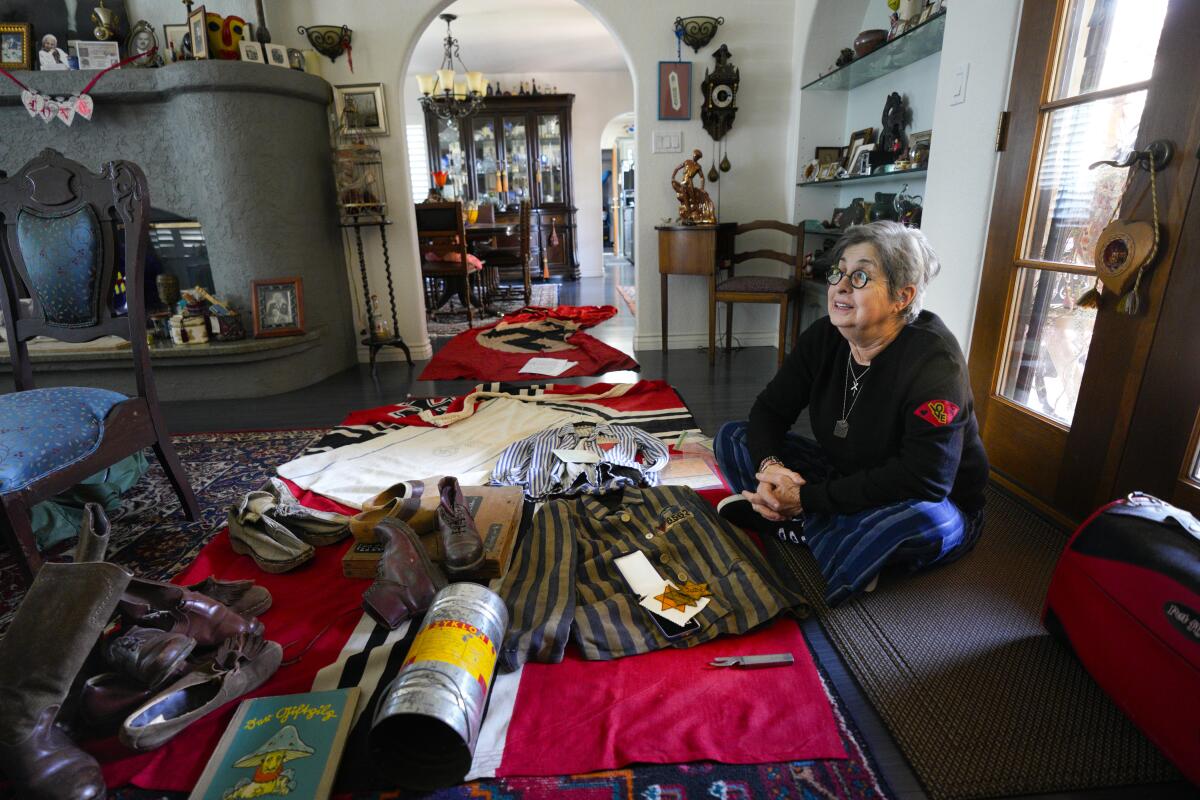
Since her RUTH exhibit opened last summer at a local library, people have reached out to Sandra Scheller to donate artifacts they don’t want. She hopes more will come forward.
Nazi flags flown over German parades or captured cities. Concentration camp uniforms and Star of David armbands. Empty cans of the Zyklon B poison gas used to massacre Jewish people during World War II.
These are just some of the many, many Holocaust artifacts Chula Vista resident Sandra Scheller has collected over the years.
“I never realized I was collecting it, because I was born with it,” Scheller said.
As the daughter of two Holocaust survivors, Scheller has spent her life finding ways to memorialize her family’s history — the good and the bad. And she’s used her artistic background to curate exhibits that share it.
The RUTH Exhibit intends ‘to wake you and shake you,’ its curator says. Now some are calling for it or a similar local exhibit to be made permanent.
Her most recent endeavor, the RUTH exhibit — an abbreviation for Remember Us the Holocaust — is currently on display at the Rancho San Diego Library.
RUTH was inspired by Scheller’s late mother, Ruth Goldschmiedova Sax, herself a survivor. It features life-sized cardboard cutouts of more than a dozen Holocaust survivors like Sax who found refuge and started a new life in San Diego.
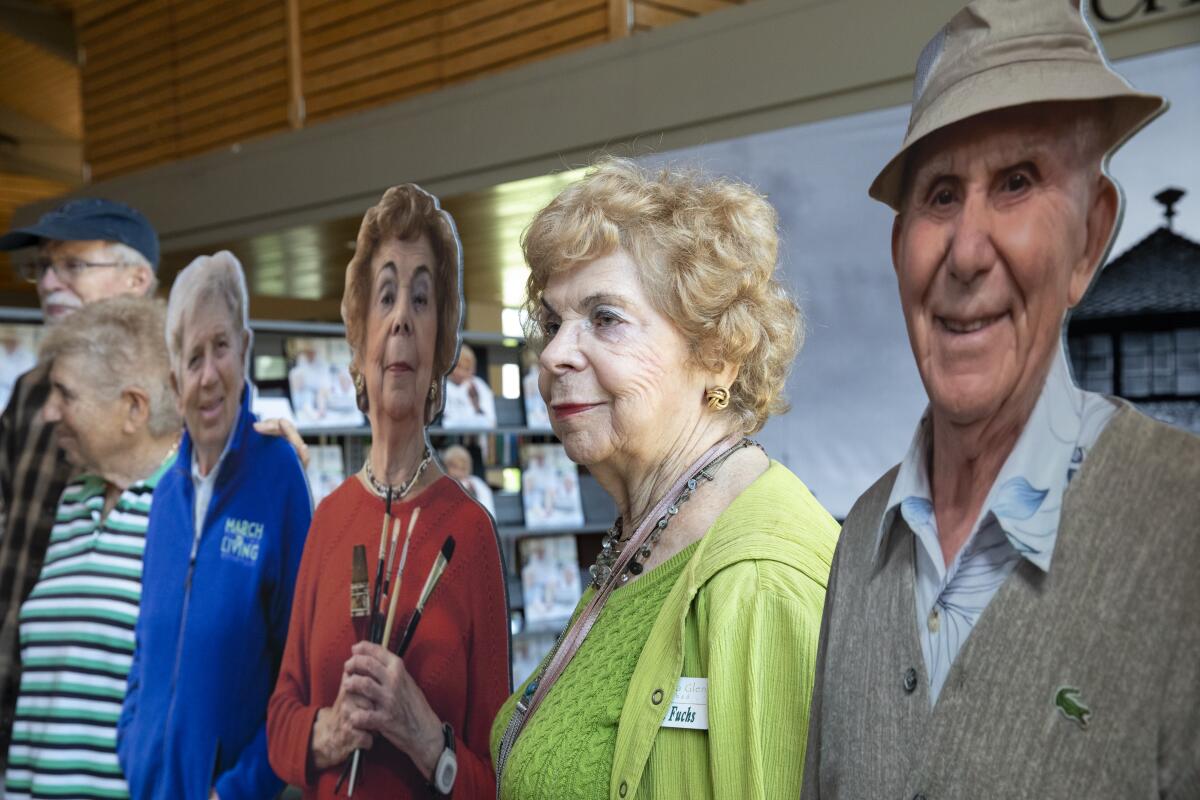
The cutouts are accompanied by other cardboard replicas of Auschwitz and artifacts from the war that illustrate some of the atrocities committed.
“I still get chills when I see those cutouts,” said Sam Landau, head of the San Diego Generations of the Shoah, an organization of children and grandchildren of Holocaust survivors. “I think they’re real, and that’s really a testament to survivors still alive today.”
But this exhibit is only temporary, and with it set to close at the end of June, Scheller has renewed her search for a permanent home for it and the rest of her collection.
My grandmother had worn the dress in Auschwitz and in Oederan (a work camp). She had worn it on a death march and in a Nazi cattle car.
Although many other large cities have Holocaust museums or public monuments, San Diego doesn’t. Scheller aims to change that, so that she and others can continue to share its history and lessons locally.
She recently created a nonprofit to start raising funding for a museum. But she’s still searching for a location and more funding to make her dream a reality.
“It’s going to take a village,” said Landau, “but it’s something that’s so important.”
“There’s still so many young people, as well as adults, who don’t know about the Holocaust,” he added. “The museum would be a way of bringing (survivors’ stories) to life and helping people understand what happened.”
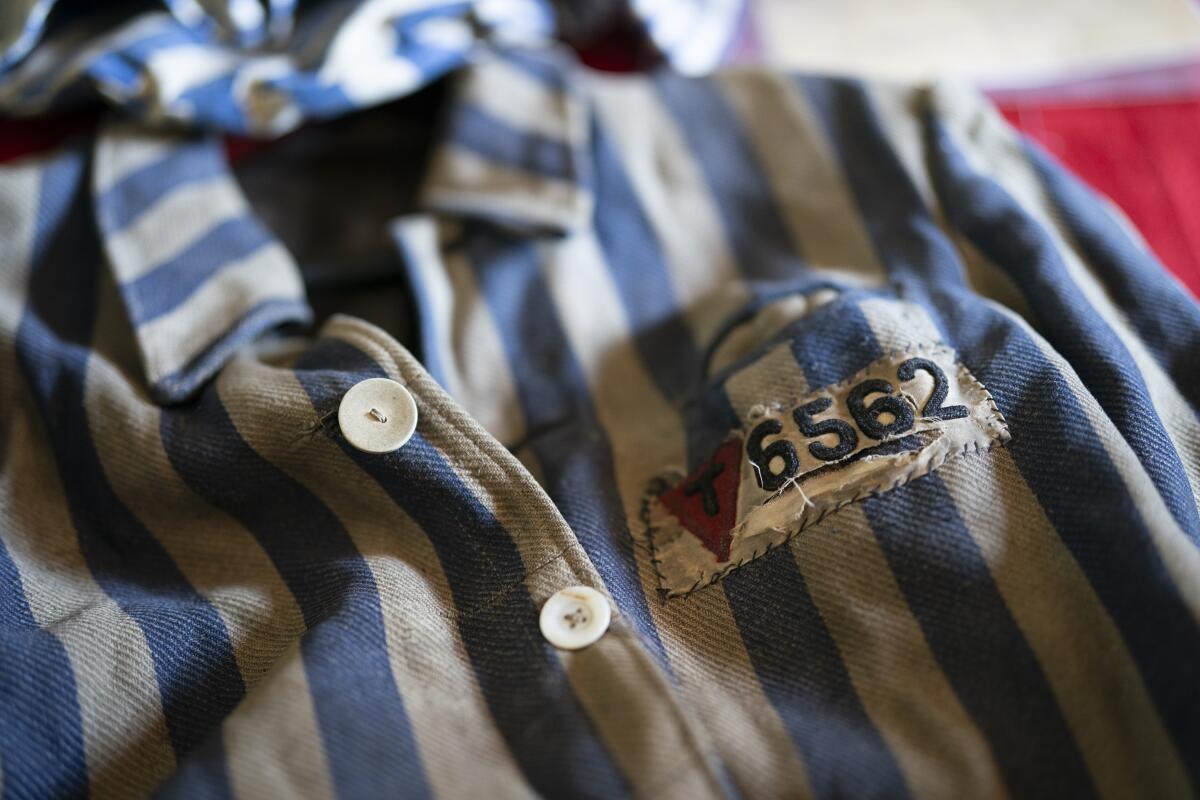
Meanwhile, Scheller is asking San Diegans with artifacts of their own that they want to part with — from Holocaust items to Nazi memorabilia — to contact her so she can incorporate them into a potential future permanent Holocaust museum in San Diego.
“Many of the parents and grandparents helped themselves during the liberation and kept things under lock and key,” Scheller said. “But it’s common for families to dispose of these items without realizing their historical significance, or the importance of preserving items related to World War II.”
Scheller says each artifact is important, helping people to “feel and see that there is truth in history.”
Since the exhibit opened last summer, many have reached out to donate items they don’t want. She hopes more will come forward and not be embarrassed or afraid to donate items that can one day fill a museum.
“We’ll be so gracious and happy to take them and preserve them and make sure that they’re documented the right way,” Scheller said.
Just last month, an anonymous donor gave Scheller a large Nazi flag that had belonged to his uncle and been in his possession for at least 50 years. The more than 6-foot flag was still brightly colored; it had only been used as a parade flag in Germany.
“The stories I hear when things are being donated are amazing,” Scheller said. “Some say that they sleep better knowing that they don’t have to sleep with the swastika-marked items that have been in their homes.”
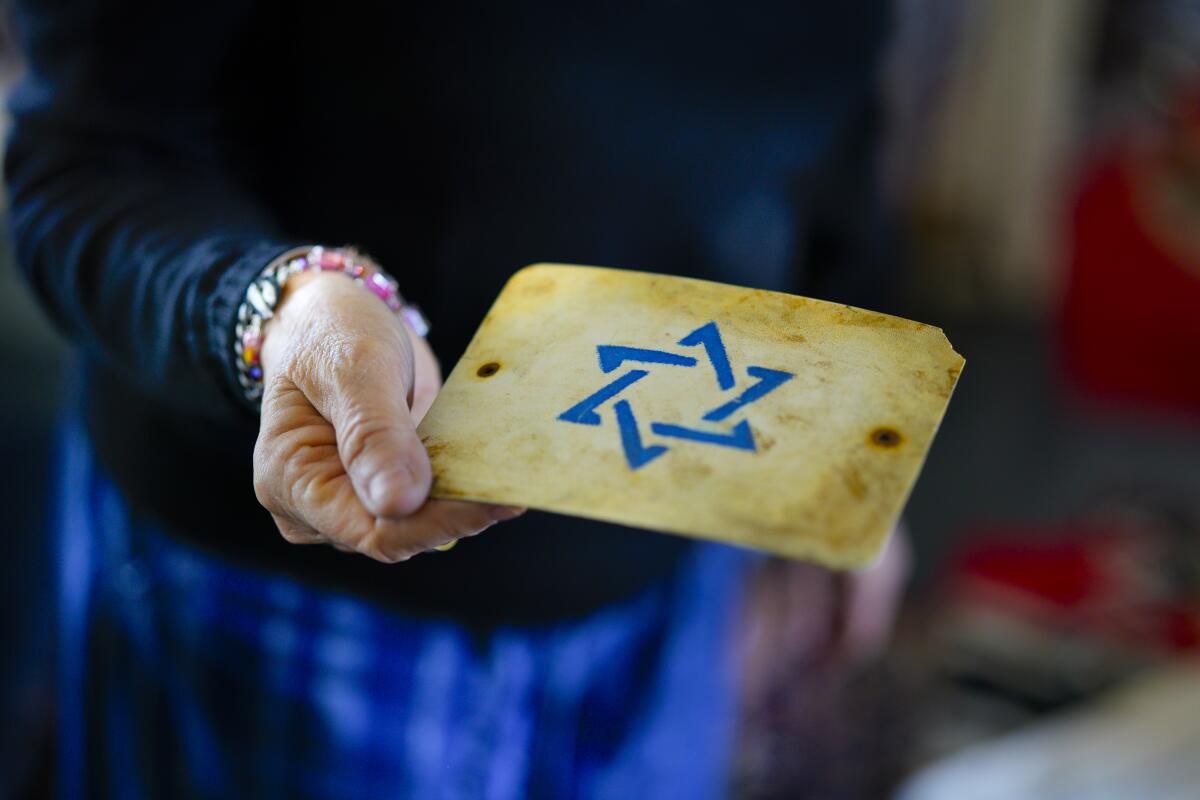
Scheller has rare items, such as “The Poisonous Mushroom,” a schoolbook used to teach children Nazi propaganda, and dog tags that Nazi commanders used to send home to families, broken in half, after soldiers had died.
She also has numerous items from her own family, including a dress her grandmother wore in Auschwitz every day for two years. It still bears the X and stripe Nazis marked down the back to identify her as a prisoner, and it still has the hidden pocket sewn into the hem to hide contraband, such as the miniature dolls her teen mother had made out of bread dough and spit in the camp.
“I understand the pain that is in (these items), but it is a symbol and proof that this did happen,” Scheller said.
Like Scheller, San Diego resident David Beck-Brown started collecting war memorabilia at a young age, after learning he was related to a German military commander who had been involved in a failed plot to assassinate Adolf Hitler. His collection has also continued to grow over the years.
He now has dozens of helmets, uniforms and weapons from the war and even some burned-out crates once filled with Jewish people’s belongings. There are also a few unique pieces in his collection, including Hitler’s underwear and a personalized, leather-bound copy of “Mein Kampf” given to Hitler on his birthday.
Beck-Brown says he has been called a neo-Nazi more times than he can count and has lost friends because of it. But he maintains the importance of his growing collection and hopes it can one day be displayed in San Diego’s Holocaust museum to educate others.
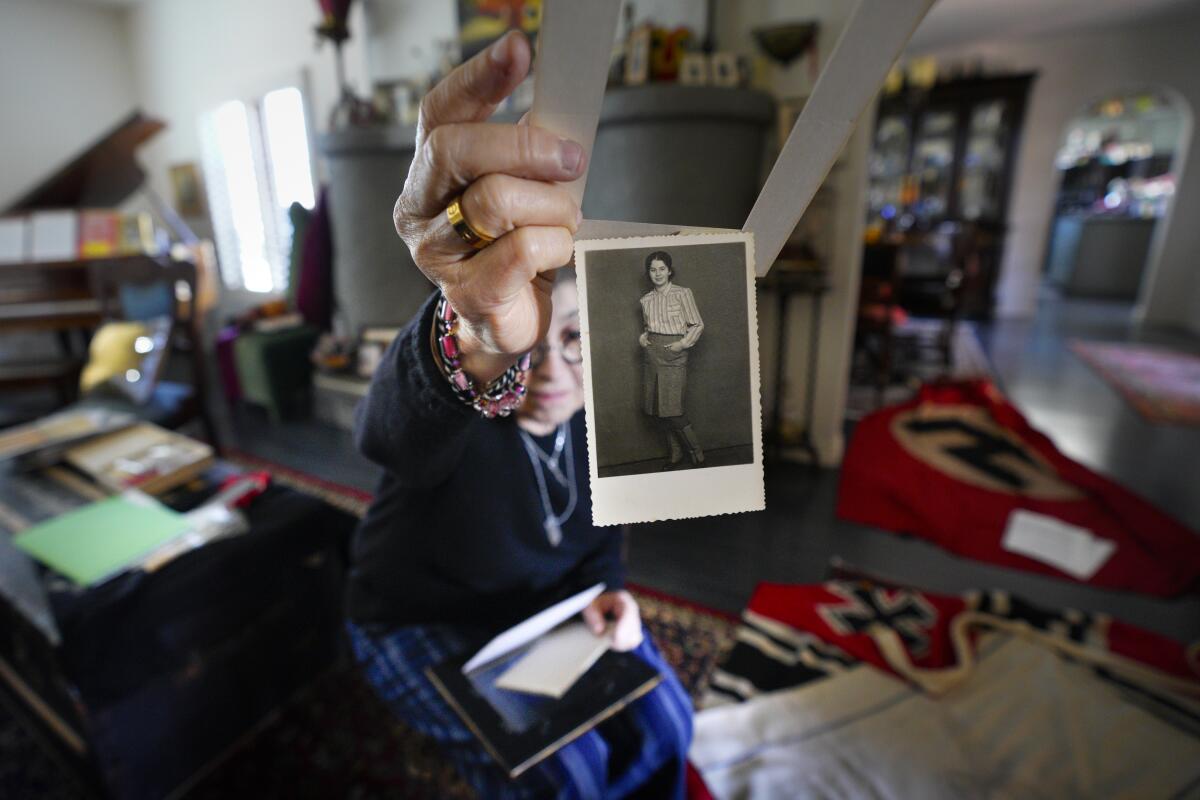
Since it opened last summer, the RUTH exhibit has been seen by at least 10,000 people, Scheller said. It has been used as an educational tool, helping survivors share their stories with younger generations. A guest speaker whose father was a Nazi even recently gave a presentation that was attended by more than 100 students.
Scheller has also partnered with other community organizations like the Butterfly Project, which is striving to teach social justice and combat bullying and bigotry through lessons from the Holocaust.
“We’re making great relationships through this project,” Scheller said. “There’s some things that are so priceless money can’t buy, but now, we really would like help (funding) a museum.”
Last month, the San Diego County Library was named one of 30 finalists for the 2024 National Medal for Museum and Library Service by the Institute of Museum and Library Services for its programming, including the RUTH exhibit.
The medal is the nation’s highest honor given to museums and libraries having a significant impact in their communities. The winners will be announced in late May.
“This accolade shows that we’re doing something right,” Scheller said. “It’s a start. We are making strides.”
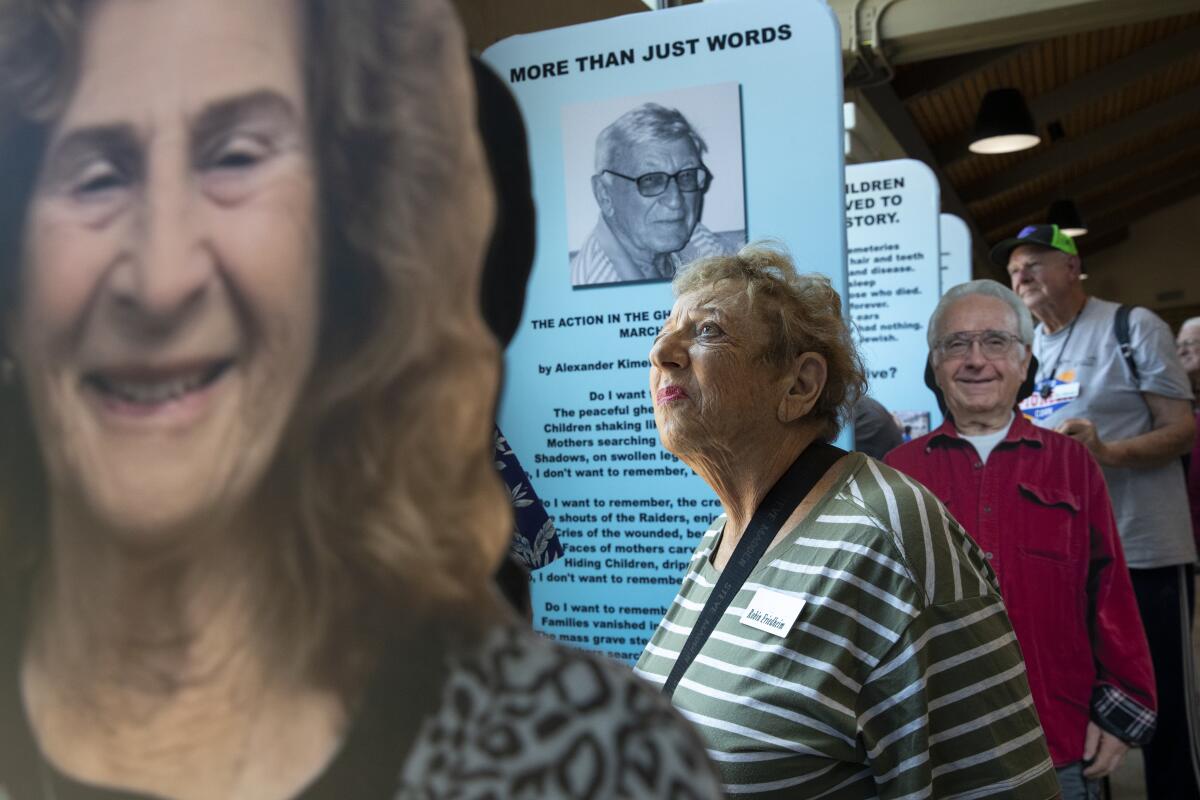
Among the Holocaust survivors featured in the exhibit is Gerald Szames, who says he fully supports Scheller’s endeavors to find a new, permanent home for the exhibit.
“I think it’s a very good idea,” he said. “She’s working very hard to do that, and I really think it’s needed here, especially in the environment of the last few months.”
Szames was only 2 years old when Hitler invaded his native Poland in 1939. His family moved to a Jewish ghetto after the Germans invaded their small town, now part of Ukraine, before they fled.
He and nine other family members ended up spending two and a half years in hiding in the woods until they were liberated by the Russians in 1944.
Most others from their small town weren’t so lucky. “Almost all were exterminated, killed,” Szames said. “We were leveled.”
It’s difficult for him to speak of his experiences because emotion can overwhelm him, he says. But he recognizes it’s important to ensure that history is not forgotten.
“There’s a lot of hate that doesn’t make sense, and maybe a museum where (people) can see what hate has done can re-educate them and stop that,” Szames said.
The RUTH exhibit can be seen during business hours through June at the Rancho San Diego Library, located at 11555 Via Rancho San Diego in El Cajon. Tours are also available from 10 a.m. to noon Thursdays upon request.
To contact Sandra Scheller or learn more about her efforts, visit rememberustheholocaust.org.
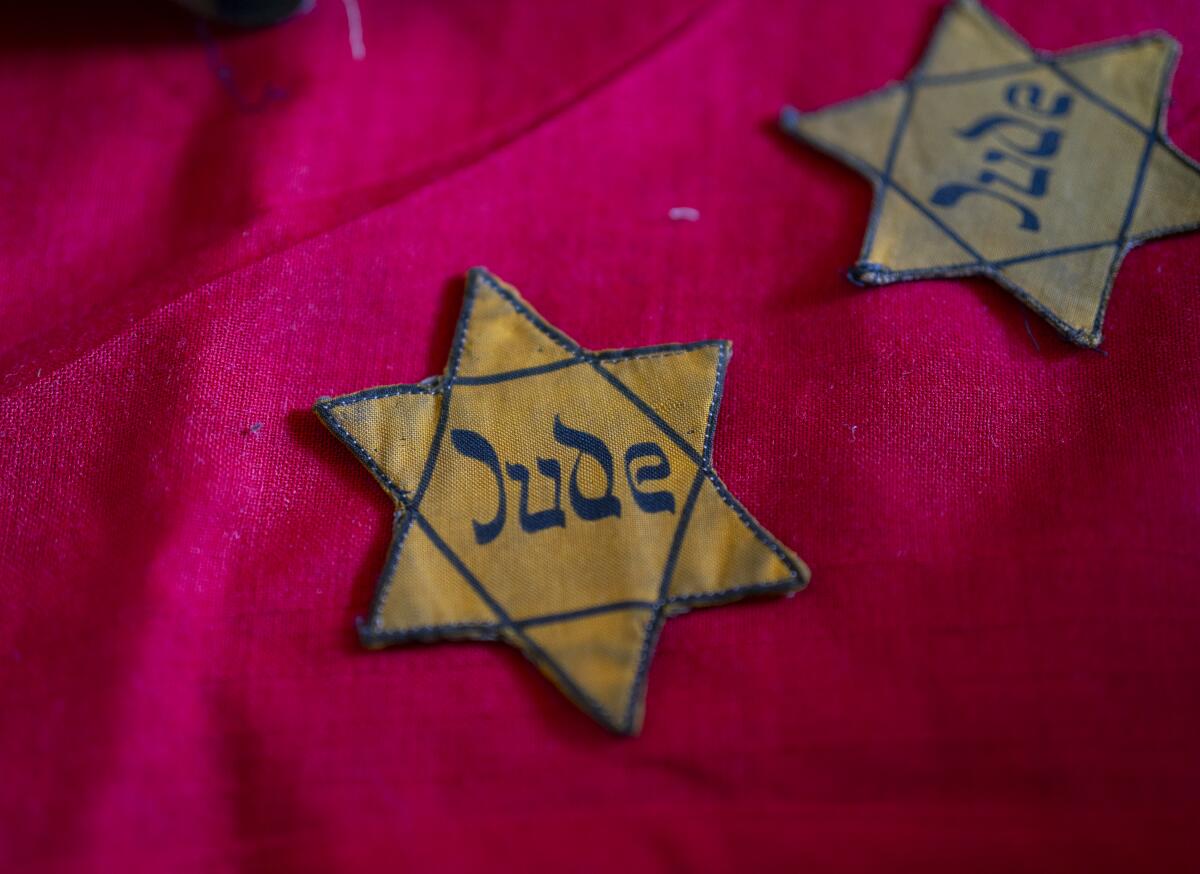
Get Essential San Diego, weekday mornings
Get top headlines from the Union-Tribune in your inbox weekday mornings, including top news, local, sports, business, entertainment and opinion.
You may occasionally receive promotional content from the San Diego Union-Tribune.

